Is Your Heart Healthy? 8 Ways AgeRight’s Home Health Patients Are Winning Back Healthy Hearts

Is Your Heart Healthy? 8 Ways AgeRight’s Home Health Patients Are Winning Back Healthy Hearts
When Buffalo Bills safety Damar Hamlin collapsed on the field last month– and yes, technically died – he suffered what medical professionals are calling a “freakish” and rare form of cardiac arrest. It wasn’t a heart attack. It wasn’t congestive heart failure.
A hit to the chest jolted Damar’s heart at the wrong spot, at the wrong cycle of rhythm, causing his heart to suddenly stop. Sort of like when you bump an electrical plug connected to a lamp and the light goes out.
Big cheers for the on-field medical team that quickly revived Damar. He’s young, otherwise healthy and expected to make a full recovery to the field.
As one of the doctors told him, “Damar, you have won the game of life.”
AgeRight’s Take Heart Program Helps Patients Win the Game of Life Too
February is American Heart Month, a time for us to reflect on our own heart health and learn ways of defeating what remains the number one cause of death in the US and globally –– heart disease.
At AgeRight Care at Home we know you don’t have to be an athlete to win the game of life. Our seniors are in training too, recovering from surgeries and other hospitalizations. We’re getting them “back on the field” of life through our customized in-home physical, occupational and speech therapies, skilled nursing and medical social work and/or a little help with daily activities like meal prep, personal hygiene, housekeeping and medication management
In this blog, we want to give you one of our winning playbooks. We call it, Take Heart.
“This is a simple but thoroughly researched checklist to a healthier heart,” says Tim Teel, AgeRight Care At Home’s long time clinical nurse manager. “We educate and empower our patients to record their progress in eight areas of their lives and then during our AgeRight home visits, we can easily identify if there are any risks and make changes fast before they become a real problem.”
One of the Lowest Hospital Readmission Rates in the Country
Does our Take Heart program work?
We believe Take Heart is one of the reasons our Marquis senior living facilities have some of the lowest hospital readmission rates in the country.
The most recent data (7/1/21 – 6/30/22) shows the national rehospitalization rate for Medicare patients at 22.5%; Marquis’ rate is 9.26%. It’s also why, according to the American Health Care Association, Marquis is among the top three multi-facility corporations for quality and why Marquis facilities are awarded 5 stars from the Centers for Medicare and Medicaid Services. Because of that success, hospitals increasingly turn to Marquis as a preferred partner helping patients manage disease.
So, during this year’s American Heart Month, join our AgeRight Care at Home squad. Let’s go in-training to keep our tickers ticking strong.
(You can use your own journal or use some of the free downloadable tools here.)
#1 Weigh Yourself
Before breakfast, weigh yourself and write it down. Compare it to your last weight. Call your doctor or nurse if you see a gain of 2 pounds or more in a 24 hour period or 5 pounds or more in one week.
#2 Take Your Prescribed Medications
Following the directives of your medical provider for medication management is essential to maintain the highest cardiac function.
#3 Check for Swelling in Your Feet, Ankles, Legs or Stomach
Swelling is an indicator of excess fluid in your system. Excess fluid causes the heart to have to work harder and/or exacerbates the ineffective heart function. Swelling is a warning signal. Report it to your medical provider.
#4 Eat Foods Low in Salt
Eat foods that are fresh, colorful and unprocessed. Salt hides out in a lot of foods we might think are healthy. Foods like sauces, frozen meals, canned goods — even the ones that claim to be healthy or say “lower sodium” — have too much salt, often 300 mg of sodium in a half cup! We have some quick and easy tips on how to reduce your salt intake in this recent Marquis blog.
#5 Watch and Record Your Daily Fluid Intake
Too much fluid forces the heart to work extra hard to pump the excess fluid volume. This can increase your symptoms: shortness of breath, weight gain, bloating and swelling of the feet or legs. Count all fluids you consume: water, coffee, tea, juice, milk and soft drinks, even fluids in foods that become liquid at room temperature. Those include soups, popsicles, frozen yogurt and ice cream. (Yes, we know. Including ice cream…that just isn’t fair!) What to do about dry mouth? Hard, sugar-free candy, a lemon wedge, frozen orange sections, frozen grapes or gum can help. Oddly, frequent brushing of your teeth also alleviates dry mouth.
#6 Balance Activity and Rest Periods
Your medical provider, nurse, physical therapist or occupational therapist can help you develop an exercise and activity plan that works on muscle strength and flexibility. They will also teach you how to plan rest periods around any symptoms, like shortness of breath.
#7 Everyday Determine Your Heart Zone
Knowing when to call your doctor is as easy as knowing these three color zones –– green, yellow and red.
- The Green Zone
This is your goal. Your symptoms are under control. You’re not experiencing any shortness of breath; weight gain of 2 pounds in a 24 hour period; ankle, leg or stomach swelling; or chest pain. - The Yellow Zone
This is your warning zone. Call your doctor or home health nurse if you experience weight gain of 2 pounds or more in a 24 hour period or 5 pounds or more in one week (If your weight increases 2 pounds or more in a 24 hour period or 5 pounds or more in 1 week, notify your doctor or nurse); increased shortness of breath and difficulty breathing when lying down; increased swelling of your feet, ankles, legs or stomach; dry cough; dizziness; or an uneasy, “something’s not right” feeling. - The Red Zone
This is the emergency zone. Go to the emergency room or call 911 immediately if you’re struggling to breath; or experiencing unrelieved shortness of breath while sitting still, chest pain, confusion and inability to think clearly.
#8 (Try to) Get 7 Hours of Sleep
We know. This one is a universal struggle, even though we know good sleep is vital to our physical and mental health. But now the call for more hours of sleep is urgent. A new study from the Columbia University Mailman School of Public Health, affirms sleep can reduce your risk of cardiovascular disease. Sleep helps reduce stress and inflammation, allowing your cells to “remodel” and your body and mind to heal.
So, set yourself up for success with the following:
- Limit your caffeine intake to the morning.
- Don’t nap too long during the day.
- Avoid screen time before bedtime. The blue light emitting from your electronic devices triggers a chemical release in the brain that tells you to stay awake.
- Limit fluid intake before bed.
- Invest in a comfortable mattress and bedding.
- Keep your room on the cool side.
- If you snore, talk to your doctor about getting tested for sleep apnea.
Okay, there’s your Take Heart playbook. We’ll see you on the training field and, like Damar, winning the game of life!
Recent Posts
Aging Well At Home — Even With COPD
24th Nov 2023Building Balance – Part Two
18th Oct 2023Building Balance – Part One
21th Sep 2023© 2026 AgeRight Care at Home | Privacy Policy



